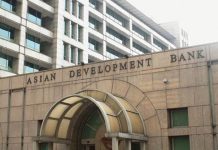DM Monitoring
Beijing: China’s inflation is likely to see moderate growth this year, but a consistent pickup is unlikely given the constrained consumption of services, a senior central bank official said. The People’s Bank of China, the central bank, is keeping a close watch on changes in the core Consumer Price Index or CPI, an indicator of inflation that excludes volatile food and energy prices, which is currently still at a low level, Chen Yulu, vice-governor of the PBOC, said during a news conference in Beijing.
Growth in personal incomes is recovering. But the resurgence of novel coronavirus infections in some regions may continue to constrain the consumption of services, said Chen. When the domestic economic recovery stabilizes, the core CPI will increase at first and moderate later in the year, he said.
China’s CPI rose by 0.2 percent on a yearly basis in December, compared with a 0.5 percent decline in November, driven by rising food prices and production costs due to the cold weather, the National Bureau of Statistics said.
Sun Guofeng, head of the PBOC’s monetary policy department, reiterated on Friday that achieving price stability is the key priority for the central bank.
The central bank should not adopt a “flood irrigation type” of easing and instead focus on avoiding a distorted price structure and asset bubbles triggered by high inflation and currency depreciation, Sun said in an article which was published on Wednesday. Sun said during the briefing that the current level of interest rates is just “appropriate”, with declines of the real lending and deposits rates in 2020. The interest rate for corporate loans dropped to the lowest level since 2015 by the end of December.
The reserve requirement ratio for financial institutions, or the amount of cash they must set aside as reserves, is at a relatively low level compared with other countries, said Sun. PBOC officials have pledged to use conventional monetary policy tools and maintain ample liquidity, even as the United States on Thursday unveiled a $1.9 trillion coronavirus rescue package called the American Rescue Plan aimed at boosting spending.






